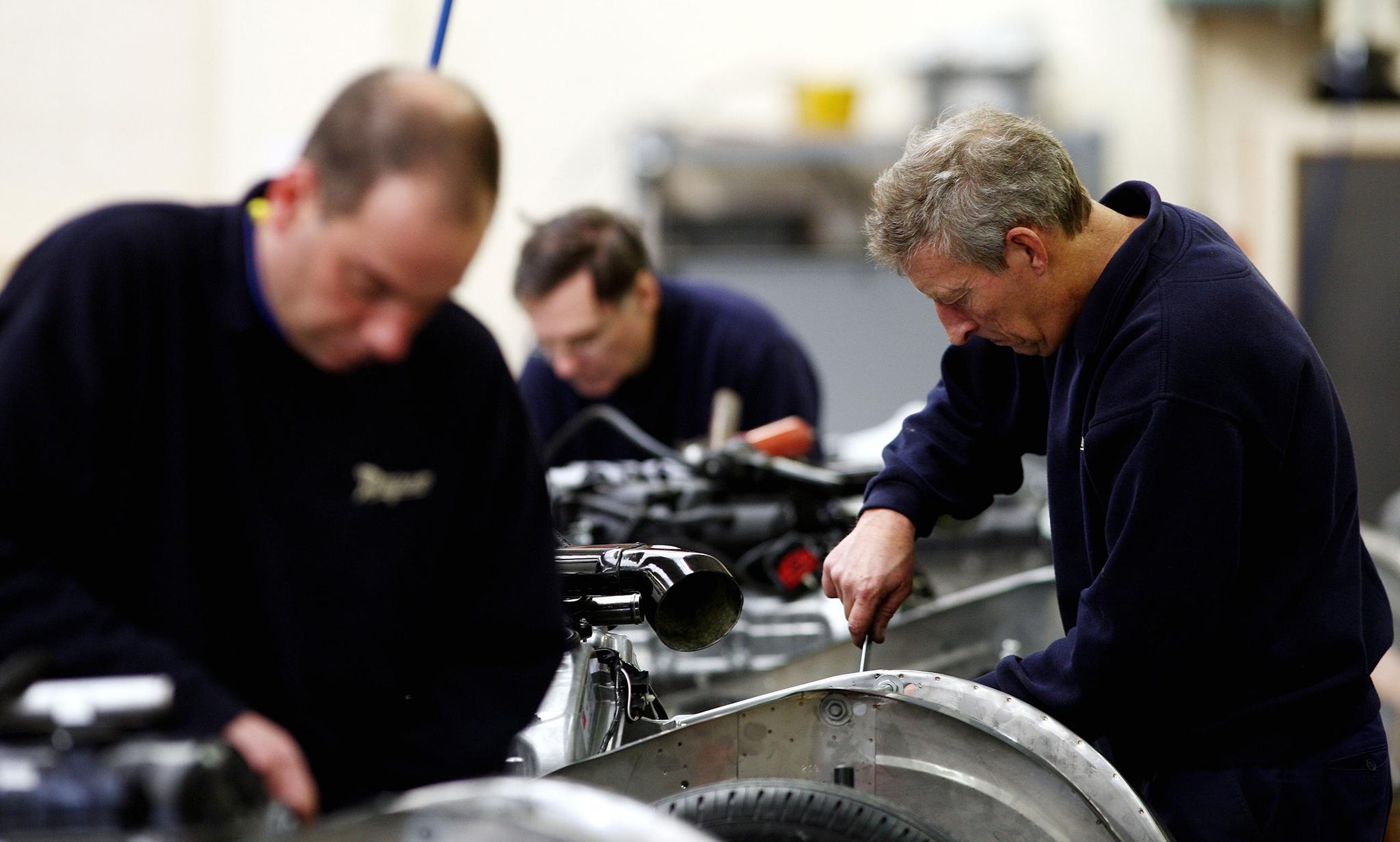CBI says UK plc stuck in slow lane. Boosting workers rights could change that
Involving employees in the businesses they work for could help to drive improvements in wages, morale, and crucially, productivity

How to fix an economy stuck in the slow lane, with the CBI just the latest organisation to say that situation isn't likely to improve much over the next couple of years.
According to the nostalgic Thatcherites driving Brexit, you start by throwing workers rights into the fire to make Britain’s “flexible” labour market look like an Uber or Deliveroo executive’s wet dream. You then stir in tax cuts targeted at wealthy individuals and corporations that don’t need them, sprinkle in a bit of Euro-phobia and NHS Privatisation, put it in the oven and serve with a little statue of Donald Trump on the top.
If that sounds to you like the recipe for the creation of a dystopia rather than a dynamic modern econonmy, you wouldn't be alone.
However, there is an alternative view. It holds that the way to drive improvements in the performance of UK plc is to give workers not less rights but more.
Ewan McGaughey, an academic at King’s College London, argues in a blog post for the London School of Economics that, by contrast to the arguments of the supposedly pro business right, there is in fact "no credible evidence" that moves to give workers more of a voice, and to end the monopoly that shareholders have over the governance of big companies, would damage productivity.
To the contrary. He makes a persuasive case that it could actually do the opposite.
Something clearly needs to change in the UK economy if it is ever to overcome the vast gap in productivity it suffers when compared to nearby competitors.
Mr McGaughey says greater worker participation could do the trick, pointing to the ‘participation hypothesis’ that states that ‘changes in human behavior can be brought about rapidly but only if people ‘participate in deciding what the change shall be and how it shall be made’.
This makes all kinds of sense. Having a say at work makes you (with apologies for using a slightly hackneyed term) a stakeholder. You are thus more inclined to work hard, and work smart for the business that employs you.
Such moves could also secure improvements in pay and conditions, particularly were unions to be involved. But so much the better if they did. Better pay goes hand in hand with improved productivity and the entire economy benefits as a result.
Interestingly, Mr McGaughey notes that Cambridge’s Centre for Business Research has compiled a Labour Regulation Index of 117 countries’ labour laws, and their change since 1970.
Results are still in preliminary stages, but he says they will likely “confirm what behavioural and qualitative evidence has already said: votes at work are essential for long-term success of companies”.
That's what the PM is trying to do, supporters of Theresa May's Government would argue. But the reforms it has proposed are tepid at best. Under planned changes to the Combined Code on Corporate Governance, companies would be able to give a compliant non executive director the responsibility of speaking for workers and then forget about it.
Mr McGaughey makes the case that a far better way of securing improvements is to ensure that workforces elect at least one director, and better still, two, with the involvement of their unions to boot.
“The overwhelming experience is that worker representatives will genuinely seek to defend employees’ interests, but do so in a cooperative way. Employees and unions will want meaningful progress. So will member nominated trustees in pension funds. If it can be done – and there is every indication it can – worker voice will promote the success of all companies,” he says.
Business news: In pictures
Show all 13Wages in Britain are flat and falling. Productivity remains in the mire. The economy is limping along, and it’s not just the CBI that believes this is unlikely to change anytime soon. As for the mood of the country? It’s sullen and unhappy.
Ms May was on the right track with her corporate shake up, but as ever, while she has talked a good game she has utterly failed to back it up.
There are even a few business figures, and shareholder groups, that see the need to do something about that, and to adopt a different approach. It's time for their voices to be heard.
Subscribe to Independent Premium to bookmark this article
Want to bookmark your favourite articles and stories to read or reference later? Start your Independent Premium subscription today.

Join our commenting forum
Join thought-provoking conversations, follow other Independent readers and see their replies